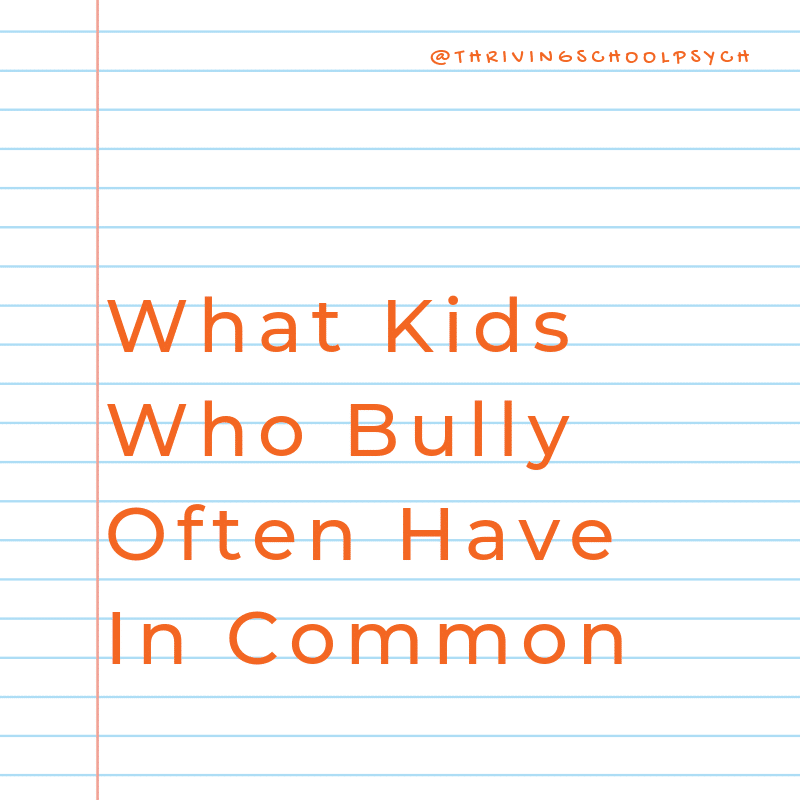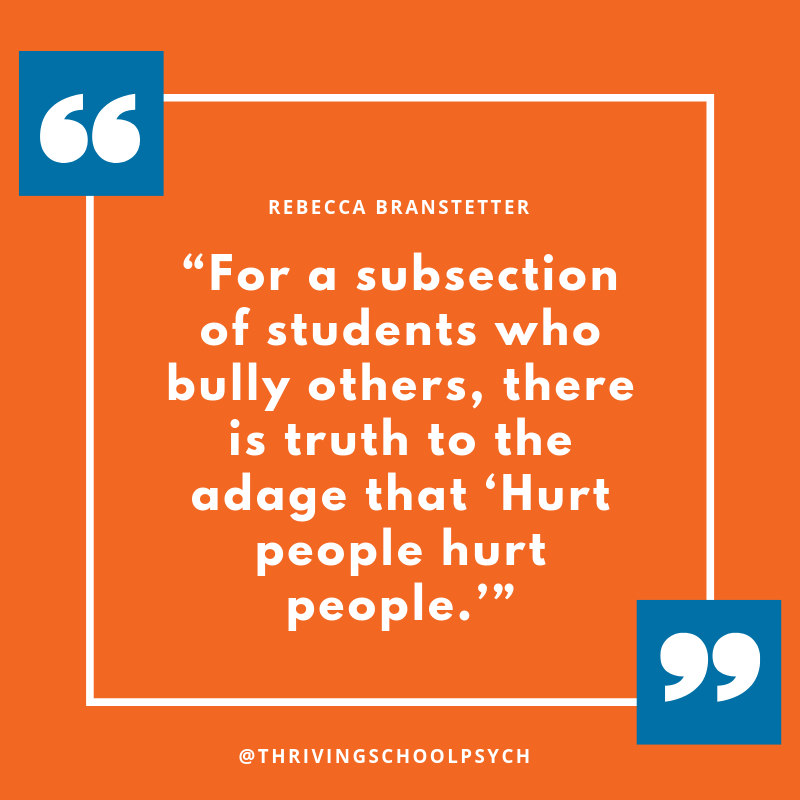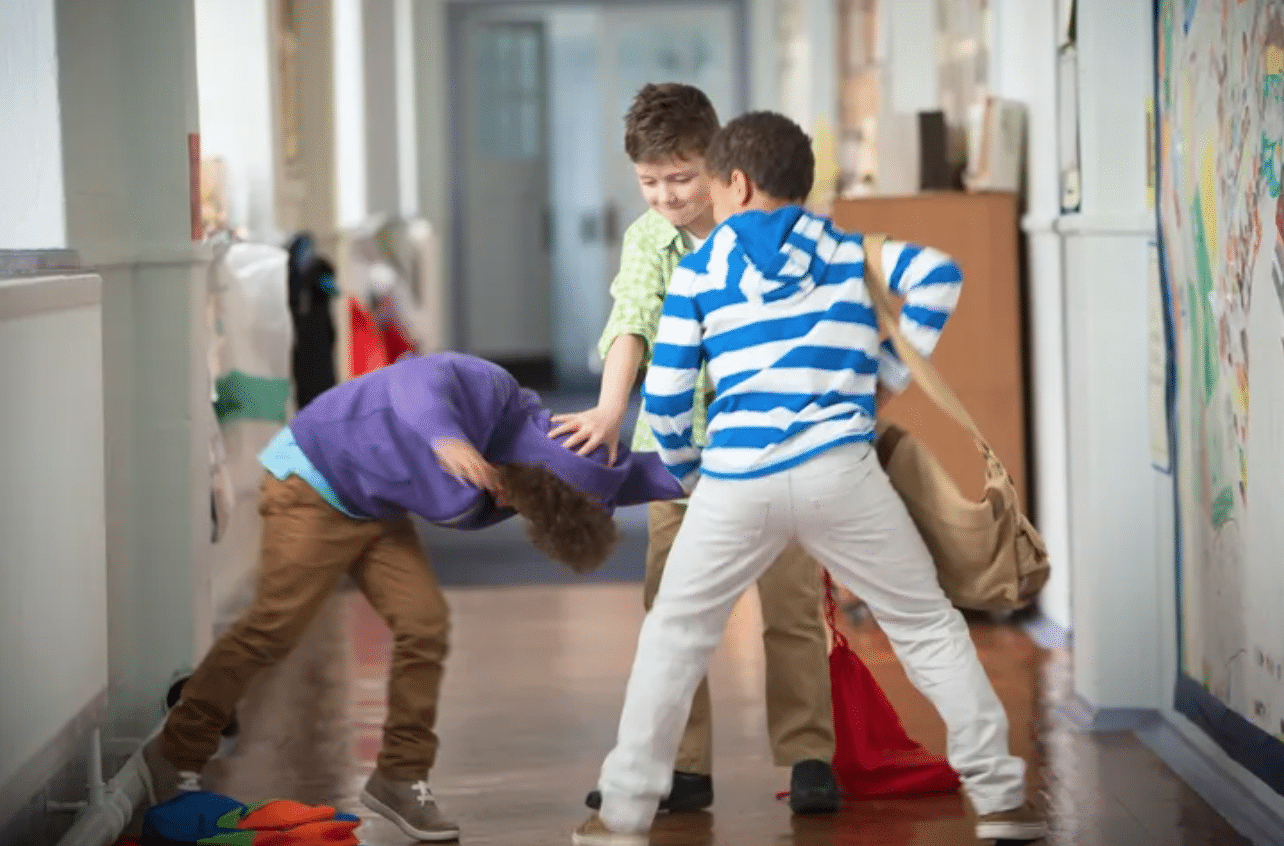
For National Suicide Prevention Week, I want to address the issue of bullying. Youth involved in bullying in any capacity – both bullies and victims of bullying – are more likely to think about and attempt suicide than youth who were not involved in bullying. In short, bullying is harmful for everyone involved.
School psychologists are often involved in addressing the underlying causes of bullying in schools. We intervene on the individual, group, and school-wide levels. While focus on supporting victims of bullying is an essential component of what we do, it is also important to think about how to prevent students from engaging in bullying in the first place. To do so, we need to look at the research on the commonalities of students who bully.
It was my great privilege to have contributed to this recent article on the Huffington Post, What Kids Who Bully Often Have in Common, so that we can be strategic about our bullying prevention efforts in our schools.
Some take-home messages that I shared with the Huffington Post about bullying:
- There is no one profile of a “bully.” While its a commonly held belief that bullies have low self-esteem, poor parenting, and a need for power, it’s actually much more complicated than that.
- Kids who bully have been found to have high levels of shame and vulnerability–meaning they are afraid that their shortcomings will be exposed. So bullying behavior serves to puts the spotlight on other’s shortcomings and deflect what they feel ashamed about. It’s a subtle but important distinction: Bullies may actually be protecting their self-esteem by taking their shame out on others.
- Bullying behavior can be addressed by identifying lagging social-emotional and behavioral skills. For instance, kids who bully may have trouble being flexible when trying to solve conflicts. They may have a hard time with empathy and taking another’s perspective. These critical social-problem solving skills can be taught.
- Adverse Childhood Experiences (ACEs) matter. As a school psychologist, I’ve worked with many children and adolescents who engage in bullying behavior. Oftentimes, these children tell me stories about their lives that would break your heart. For a subsection of students who bully others, there is truth to the adage that ‘Hurt people hurt people.’

What School Psychologists Need to Know about Bullying:
- The roots of bullying behavior are myriad, and some are less changeable than others. While it is harder to change personality tendencies and life circumstances, we can address the problems that set the stage for bullying.
- School communities can systemically build a positive school culture proactively. School-wide social-emotional learning programs can teach respect, kindness, empathy, and other critical social communication skills.
- Investing in mental health professionals such as school psychologists, school counselors, and school social workers would go a long way to supporting kids in the critical life-skills they need to navigate social relationships.
Investing in mental health professionals such as school psychologists, school counselors, and school social workers would go a long way to supporting kids in the critical life-skills they need to navigate social relationships.
What Are School Psychologists and School Communities Doing to Address Bullying?
Let’s hear from the school psychologist community–what is your school doing to address bullying behavior? What roles do school psychologists play in addressing bullying in our school communities?

So excited! Our school has a RTI team and PBIS team. They received a grant and sent the PBIS team to training this summer. They just presented in Personal Development training this morning about school-wide PBIS so that we can all be on the same page. We discussed what constitutes Tier 1, 2 and 3 behaviors, interventions and referrals to the PBIS team for assistance, objective writing and data tracking. Our school also does Character Education each month in classrooms with a PowerPoint and activity for students. This is exactly what I have been wanting and advocating for, and we are doing it!
We school psychologists are members of school-based of Socioemotional Learning or Socioemotional Development teams. Our advocacy on behalf of developmentally appropriate opportunities to safely build social competencies make a difference – and should. We can think about recess, cafeteria, transitions and classroom cooperative learning activities as opportunities for in-context learning. Incorporating children’s input is key to make sure that initiatives stick and become routine. Here are some examples for my beloved inner-city elementary school: interest-based cafeteria seating arrangements; interest based (kids select) differentiated recess; quick games for waiting times; “I can relate” reading comprehension conversations, thank you notes to peers, hallway greaters etc etc etc. We are teaming up with student support staff and adding child-centeredness to a fast-paced, demanding learning community. Bullying and bullies learn flexibility when we are flexible enough to genuinely respond to their needs.